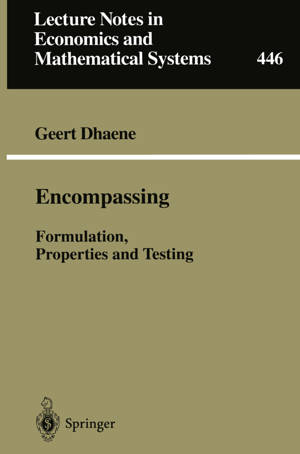
- Afhalen na 1 uur in een winkel met voorraad
- Gratis thuislevering in België vanaf € 30
- Ruim aanbod met 7 miljoen producten
- Afhalen na 1 uur in een winkel met voorraad
- Gratis thuislevering in België vanaf € 30
- Ruim aanbod met 7 miljoen producten
Zoeken
Omschrijving
The history of many sciences is characterized by an almost continuous emer- gence of new theories. From a normative point of view, the survival of a new theory should mainly be determined by its ability to explain a new body of facts which the existing theories are unable to explain. If in addition the new theory is able to explain all the results obtained by the existing theories and if it can point out why these theories fail to explain certain facts, it should become the dominant theory. Otherwise, it might coexist with other theories for some time. Hence, a new theory ought to be judged not only by confronting it with existing facts, but also by confronting it with existing theories. The idea that a theory should be able to account for the results ob- tained by other theories, although implicitly adhered to by many scientists, has rarely been formalized. The statistics literature on parametric hypoth- esis testing, though, might be seen as an instance of such a formalization.
Specificaties
Betrokkenen
- Auteur(s):
- Uitgeverij:
Inhoud
- Aantal bladzijden:
- 160
- Taal:
- Engels
- Reeks:
- Reeksnummer:
- nr. 446
Eigenschappen
- Productcode (EAN):
- 9783540618904
- Verschijningsdatum:
- 28/01/1997
- Uitvoering:
- Paperback
- Formaat:
- Trade paperback (VS)
- Afmetingen:
- 156 mm x 234 mm
- Gewicht:
- 263 g

Alleen bij Standaard Boekhandel
+ 105 punten op je klantenkaart van Standaard Boekhandel
Beoordelingen
We publiceren alleen reviews die voldoen aan de voorwaarden voor reviews. Bekijk onze voorwaarden voor reviews.











